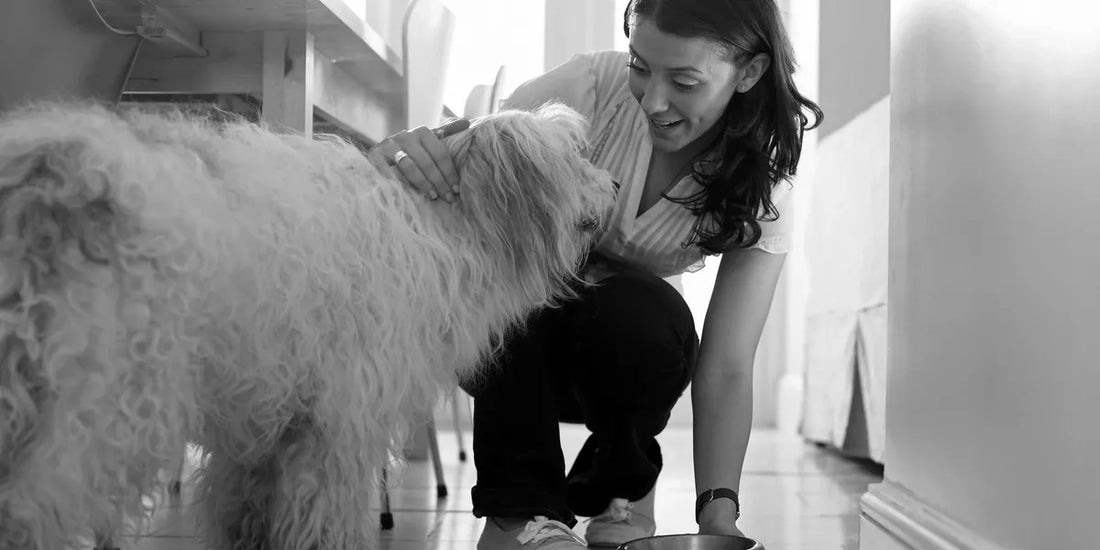
Ketogenic Diet for Dogs
Get ready to revolutionise your dog's diet with our Ketogenic Diet for Dogs! This specially formulated meal plan is perfect for a 20kg dog, aiming for approximately 1000 calories daily.
Designed with optimal nutrition in mind, this diet ensures your furry friend gets the right balance of fats, proteins, and carbohydrates to thrive.
Creating a ketogenic diet means focusing on 70% of total calories from fat, 20% from protein, and 10% from carbohydrates. Here's how you can do it:
Start with 80g of total fat, 100g of protein from sources like chicken meat or sardines, 50g of cooked potatoes (or around 60g if using sweet potatoes), and 250g of cooked green leafy vegetables (silverbeet is highly recommended). Remember to weigh the vegetables before cooking to get the right amount.
Since 100g of chicken meat or sardines already contains around 10g of fat, you'll need to add an additional 70g of fat to meet the dietary requirements. This can be done in various delicious and nutritious ways.
Consider incorporating:
- 25g of coconut oil (approximately one large spoon)
- 10g of tahini
- 10g of peanut butter
- 25g of chicken fat
- A quarter of a Brazil nut (rich in selenium)
- Decrease the quantity of krill oil based on the recommended dosage for dogs (three times less than the human dose)
These fats not only provide essential calories but also contribute fat-soluble vitamins and minerals. For example, almond butter adds potassium, magnesium, and manganese; tahini offers iron, potassium, magnesium, zinc, and vitamin A; and krill oil supplies omega-3 fatty acids.
Mix these fats into your dog's meal for a nutritious and satisfying dish. Alternatively, you can place peanut butter and tahini in a Kong toy for a fun and engaging treat.
Ensure you weigh your dog weekly to monitor any changes in body weight and adjust the diet as necessary. This balanced and nourishing ketogenic diet will help your dog maintain optimal health and energy levels.
Note: This diet is not suitable for dogs with a sensitive pancreas. Always consult your veterinarian before making any significant changes to your dog's diet.
